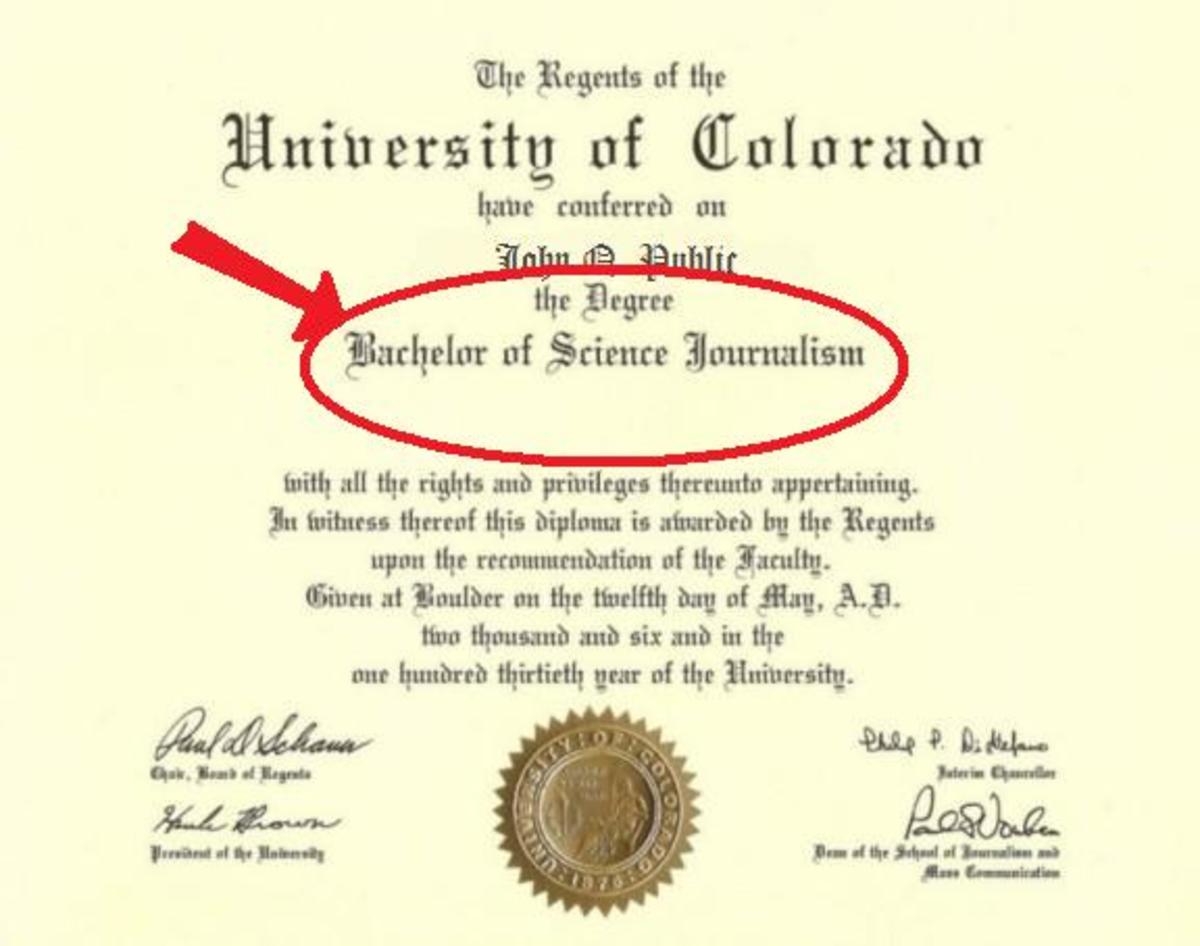Should I Go to Trade School or College?
Choosing Between College and Trade School
By the time you are in your junior or senior year of high school you may be deciding what kind of a job you want in the adult world you'll enter once your required education is over. And post-secondary schooling is not required, though if you choose not to pursue some form it will extremely limit your career options.
Some people sneer at trade school saying that it's for blue collar workers and not intelligent people. Nothing could be further from the truth. Nurses, preschool workers, mechanical drafters, administrative assistants, bio-technicians, engineering assistants, and insurance salespeople often start their careers in trade schools. And there is nothing to prevent going on for a four year degree once you have started your career after completing a two year degree or certificate.
Other people sneer at colleges and universities, saying that they don't teach practical skills and will not help you earn significantly more in your career. There is a small amount of truth to that--but a great deal has to do with the major chosen.
Here are some of the reasons for and against going to either school.
Trade Schools: The Pros
- Saving money. Trade schools cost significantly less than four year colleges and universities. Semester for semester, they offer more bang for your buck. In my home state, Indiana, the cheapest school is a trade school--Ivy Technical Institute. Indiana Wesleyan University, a traditional four-year school and a private one too, is on record as being the most expensive.
- Saving time. A certificate can be earned in a year or less, part-time. A technical certificate will take a year full-time, while an associates can be earned in two years of full-time work. By going to school for a year or two, you will be able to go to work soon after, gaining real world experience. If you decide to go back for a bachelors that is always possible, and you will be able to go part time while you earn your way. That way you won't have massive student loans to worry about paying off.
- Emphasis on the Essentials. Because the primary goal of a trade school is to set its students up in skilled or semi-skilled trades, you won't be required to take a bunch of classes you have no interest in and that have nothing to do with the kind of job you want.
Trade Schools: The Cons
- You may not be taken as seriously in certain job markets. Not all certifications are equal either. A Bachelor of Science from a four year university will probably jump start your position to a great extent than an Associate of Applied Science for a two year trade school or community college, even in the same field.
- Your job will more likely be a blue collar one. That may or may not be a bad thing, however. Some people simply prefer to work with their hands. Nevertheless there is a slight social preference in favor of white collar professionals who don't get their hands dirty or calloused. This is neither right nor fair, but it exists.
- You will have fewer opportunities at a well-rounded education and less chance at being a polymath, if you want to. There is a reason four-year universities offer a bunch of core curriculum and that's to help turn young people into well-rounded adults who are knowledgeable about their own and other cultures in addition to being prepared for a future career.
Nursing School

Choose a Trade School if...
- Money is tight or a real issue. Or if you don't want to go into debt (much.) Or if your parents refuse to co-sign your student loan. You can get a job at a fast food place or as a cashier at one of the marts and pay your way to attend school part time while you work full time. Or vice versa. Some people work and attend school full time, but that's really not to be recommended.
- You want to finish school in a year or two. Maybe you simply aren't interested in reading and studying. And that's okay. People are different. Why torture yourself for four years?
- You are truly interested in a skilled trade rather than a "professional" career. The fact is, there are people in highly demanded trades graduating from trade school and finding work immediately while people with B.A.'s from universities are unable to find anything to do with their framed diplomas and try to pay off their degrees with fast food jobs. They end where you started!
Universities: the Pros
- More prestigious than trade schools. In certain fields, graduating from a university or college will either help you get the job or start out at a higher level job than you would if you only had a diploma or degree from a common trade school. And, some fields like teaching, law and medicine are simply not accessible to trade school graduates.
- A better rounded view of the world. Hence the title "university" as in universe. There is a reason that college programs demand taking classes that aren't directly related to your major. This is to help you better understand the world around you and how different studies interrelate to one another. For many majors a minor will be required as well. You also will often be required to study one or two foreign languages for a couple years. All of these, including the art and music appreciation, are meant to make you into a polymath.
Universities: the Cons
- Expense. Universities cost a lot more than trade schools. As has already been mentioned on the pros of the trade schools.
- Time put in. A lot of bachelors wind up taking much more than four years to complete.
- University degrees are less likely than trade school certificates to lead to immediate employment.
College Student

Go to College if...
- You want to study something not offered in a trade school. This should be a no-brainer.
- You are worried about the prestige of the university or college you attend and have reason to believe it will make a big impact on your future career once you graduate.
- In addition to career education you are also concerned about cultural enrichment and want to gain a well-rounded view of the world and different studies besides the particular course of study you actually need for your profession.
- You are capable of selecting majors that will lead to gainful employment.
- (Optional, though perhaps it shouldn't be.) You are eligible for several scholarships and grants to defray college costs.
A View of a Trade School
Educational Preference
Do you think you prefer college or trade school?
College in Southern States

Some Questions to Ask Yourself
- What career do I want to pursue and how will this school choice further or hinder that career?
- What percentage of this school's graduates find gainful employment in their chosen field? Does the school actively assist its alumni when they look for work?
- What does this school offer in the way of scholarships and grants?
- Externships and internships for its programs?








